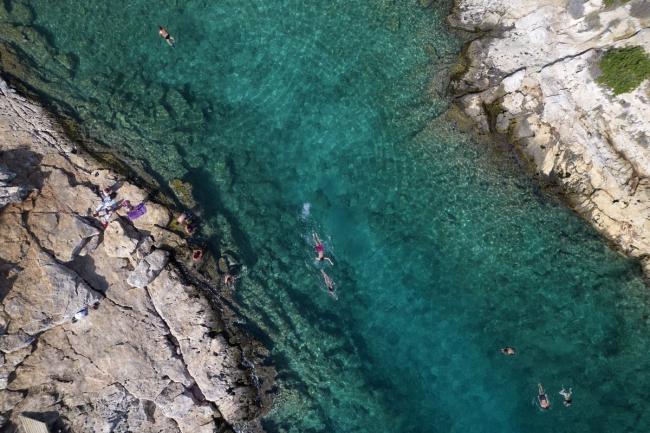Articles Menu

Aug. 1, 2021
A heat wave baking southeast Europe has fueled deadly wildfires in Turkey and threatened the national grid in Greece as governments scrambled Monday to secure the resources needed to cope with the emergency.
Temperatures reached 45 C (113 F) in inland areas of Greece and nearby countries and are expected to remain high for most of the week.
Battling deadly wildfires along its coastline for a sixth day, Turkey broadened an appeal for international assistance and was promised water-dropping planes from the European Union. The fires have been blamed for the deaths of eight people in recent days.
In Greece, workers with health conditions were allowed to take time off work, while coal-fired power stations slated for retirement were brought back into service to shore up the national grid, under pressure due to widespread use of air conditioning.
Dann Mitchell, a professor of climate science at the University of Bristol, said that the heatwave in southeast Europe “is not at all unexpected, and very likely enhanced due to human-induced climate change.”
“The number of extreme heat events around the world is increasing year on year, with the top 10 hottest years on record all occurring since 2005,” Mitchell told The Associated Press.
“This year, we have seen a number of significant events, including a particularly dramatic heatwave in western Canada and the U.S., that was extreme even for current levels of climate change,” Mitchell said. “These black swan events have always happened, but now they sit on the background of a hotter climate, so are even more deadly.”
As hot weather edged southward, Italy and Croatia were experiencing storms as well as wildfires in different regions of the country.
A small tornado in Istria, on Croatia’s northern Adriatic coast, toppled trees that destroyed several cars, hours before a large fire erupted outside the nearby resort of Trogir, threatening homes and the local power supply.
Some 30 people were treated for light smoke inhalation in Italy’s coastal city of Pescara, after flames tore through a nearby pine forest.
Cyprus, recovering from a major wildfire last month, kept water-dropping planes on patrol to respond to fires as they broke out.
“If you don’t react right away with a massive response to any outbreak, things can turn difficult quickly,” forestry service chief Charalambos Alexandrou, told state-run media.
“The conditions are war-like.”
[Top photo: https://www.theglobeandmail.com/canada/article-as-scorching-temperatures...